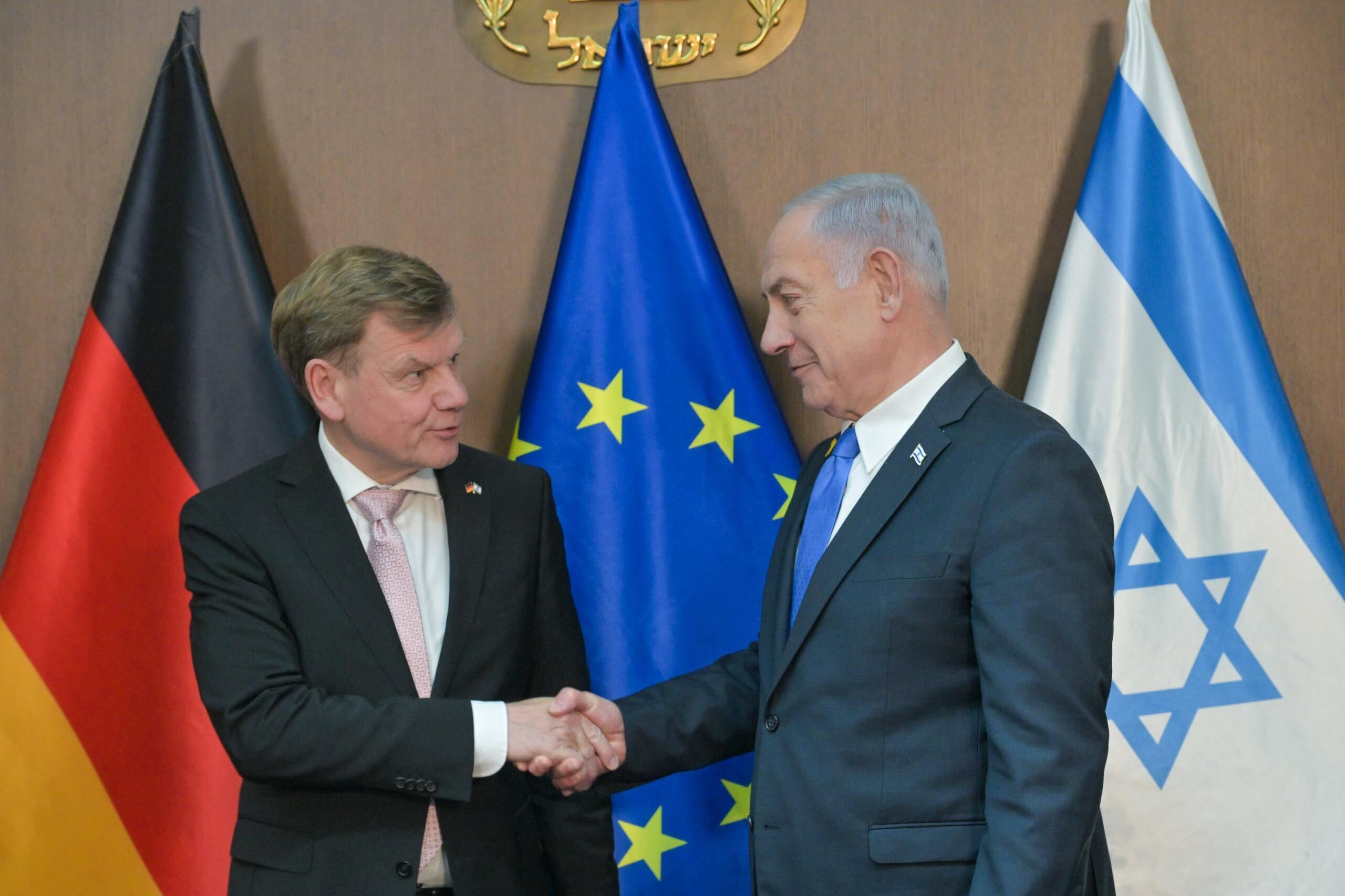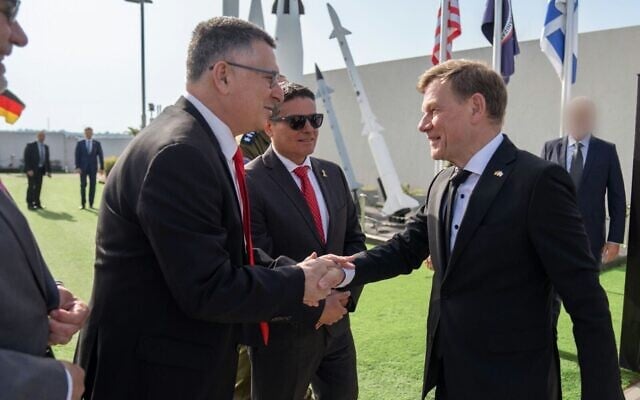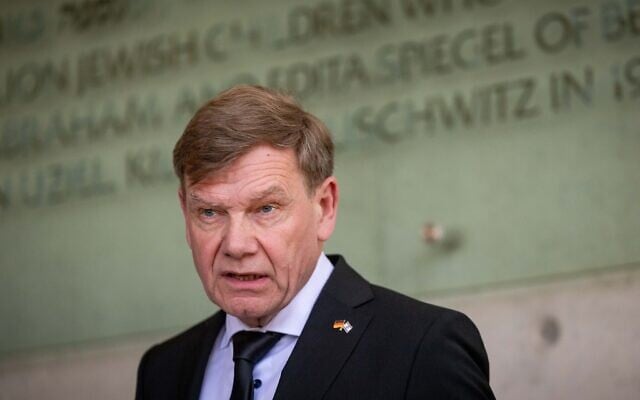



Germany’s Foreign Minister Johann Wadephul said Sunday that the conflict in Gaza cannot be solved by military means and a political solution must be found to end the war permanently, while visiting Israel to mark 60 years of bilateral relations.
“I do not believe that this conflict can be permanently resolved by military means,” Wadephul said in Jerusalem. “Nevertheless, it is urgently necessary that Hamas is disarmed and that it can no longer have military control over Gaza.”
He said Germany would do whatever it took to guarantee Israel’s security, but this did not mean that his country could not criticize Israel’s actions. He added, though, that this “must not lead to antisemitism.”
“I am not sure whether all of Israel’s strategic goals can be achieved in this way [through a military campaign] and whether this will serve Israel’s security in the long term,” Wadephul said. “That is why we are appealing for a return to serious negotiations on a ceasefire.”
Wadephul declared that the return of hostages held by terrorists in Gaza is the German government’s priority.
He also said it was clear that Gaza was Palestinian territory. “We need a political solution for the reconstruction of Gaza without Hamas,” Wadephul said.
The war against Hamas in Gaza, sparked by the terror group’s October 7, 2023, massacre in Israel, has cast a shadow over relations, with Germany at pains to carefully calibrate its response.
New German Chancellor Friedrich Merz said last Tuesday, the day he took power, “Israel has the right to defend itself against the brutal attack by Hamas terrorists on October 7 and everything that followed.”
“But Israel must also remain a country that lives up to its humanitarian obligations, especially as this terrible war is raging in the Gaza Strip, where this confrontation with Hamas terrorists is necessarily taking place,” he said.
During his visit on Sunday, Wadephul met Prime Minister Benjamin Netanyahu as well as his counterpart, Gideon Sa’ar. Berlin’s top diplomat toured Israel’s Arrow missile defense system at the Defense Ministry’s Directorate of Defense, Research and Development, and Yad Vashem Holocaust museum with Sa’ar, who said he had been invited to visit his counterpart in Berlin and “will have the honor of visiting Germany very soon, hopefully in the beginning of June.”
“We’ve had excellent relations, we’ll continue them in this conversation,” Netanyahu said, alongside Wadephul ahead of their meeting at the Prime Minister’s Office in Jerusalem, in a video shared by the PMO.
“We have a lot of common interests, a lot of common values, and a lot of common challenges…I will send my best regards to Friedrich Merz and to your joint efforts to continue the Israel–Germany alliance,” he continued.
Wadephul replied, “It’s a privilege to be here on the 60th anniversary of diplomatic relations between our countries.”
Alongside Wadephul’s visit, President Isaac Herzog is visiting Germany to mark the milestone in ties.
In 1952, Israel and West Germany signed a reparations agreement to help Jerusalem fund the cost of resettling Jewish Holocaust refugees as well as compensating them for the loss of property under the Nazi regime. However, it wasn’t until 1965 that full diplomatic relations were formed. East Germany never maintained full relations with Jerusalem.
In his first phone call to the premier since assuming office Thursday, Merz discussed Gaza and regional issues with Netanyahu, and also “reiterated that the existence and security of Israel are a part of German raison d’être,” according to a Berlin readout.
Standing alongside Wadephul at a press conference in Jerusalem, Sa’ar said Iran’s uranium enrichment facilities “must be dismantled” and that the US and Israel agree on this issue. Next to Sa’ar, Wadephul said, “Iran is an issue that greatly concerns” Germany.
“The most dangerous regime must not be allowed to obtain the world’s most dangerous weapon. Its uranium enrichment facilities must be dismantled,” said Sa’ar at the Foreign Ministry.


